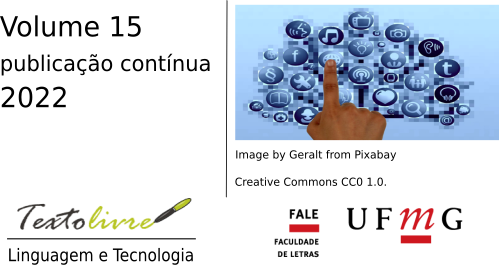Neuroeducation and technology
emerging partners in the teaching-learning process in the educational context of the XXI century
DOI:
https://doi.org/10.35699/1983-3652.2022.40459Keywords:
Technology, Neuroeducation, Teaching-learning, EducationAbstract
Technology facilitates the lives of many people, and inserted in the educational environment, it provides the teacher with different ways to streamline classes and make them interesting for students. Therefore, rethinking practices and the pedagogical process are routine ways of acquiring quality education. In the same way, neuroeducation and neurodidactics arise, which, as, as disciplines, increasingly strengthen teaching and learning through the understanding of how the brain works. To understand this dynamics is to offer students a more elaborate class, rethought based on a lot of reflection. Therefore, this research emerged with the general objective of analyzing neuroeducation and technology as emerging partners in the teaching-learning process in the context of the 21st century. Can neuroeducation and technology be partners in the teaching-learning process? It is the problem that drives this research. Finally, in this work, we will find the opportunity to generate reflections on the technology associated with neuroscience and its contribution to the educational process. It is up to the school, therefore, to adapt to these new moments, so there is no doubt that technology is a great resource for educational and social activities.
Downloads
References
AMORÍM, J. I.; MORAIS, I. As contribuições das novas tecnologias e dos sistemas Braille para o acesso ao conhecimento das pessoas com deficiência visual. In: ORTIZ, L.; CARRIÓN, J. J. (Ed.). Reflexionando sobre la educación inclusiva. Una apuesta de futuro. [S.l.]: Editorial Universidad de Almería, 2019.
BRANDÃO, A. dos S.; CALIATTO, S. G. Contribuições da neuroeducação para a prática pedagógica. Revista Exitus, v. 9, n. 3, p. 521, jul. 2019. ISSN 2237-9460. DOI: 10.24065/2237-9460.2019v9n3ID926. Disponível em: http://www.ufopa.edu.br/portaldeperiodicos/index.php/revistaexitus/article/view/926. Acesso em: 10 out. 2022.
CASTELLS, M.; BORGES, M. L. X. de A. A galáxia da internet: reflexões sobre a internet, os negócos e a sociedade. Revisãa técnica. Rio de Janero: Jorge Zahar, 2003.
FERNÁNDEZ BATANERO, J. M.; TADEU, P. J. Capacitación tecnológica docente y discapacidad. Aminorando la brecha digital en la educación superior. In: ORTIZ, L.; CARRIÓN, J. J. (Ed.). [S.l.]: Editorial Universidad de Almería, 2019.
FERNÁNDEZ MARTÍNEZ, M. Propuesta basada en la Neurodidáctica de una “Caza del tesoro” para tercer curso de la ESO. Madrid: Editorial Inclusión, 2021.
HERNÁNDEZ FERNÁNDEZ, A.; DE BARROS, Claudia. Inclusión, atención a la diversidad y neuroeducación en Educación Física (Inclusion, attention to diversity and neuroeducation in physical education). Retos, v. 41, p. 555–561, jul. 2021. DOI: 10.47197/retos.v0i41.86070. Disponível em: https://recyt.fecyt.es/index.php/retos/article/view/86070. Acesso em: 10 out. 2022.
HURTADO LEÓN, I.; TORO GARRIDO, J. Paradigmas y métodos de investigación en tiempos de cambio. 4. ed. Carabobo, Venezuela: Episteme Consultores Asociados, 1998.
LEVY, P. Cibercultura. São Paulo (SP): Ed. 34, 1999.
LIMA DO NASCIMENTO, M. S.; ORTIZ, A.; HERNÁNDEZ FERNÁNDEZ, A. La formación tecnológica del docente y las prácticas inclusivas en el contexto brasileño. Revista Espacios, v. 41, n. 35, 2020.
MOLINA, D.; LÓPEZ, P.; HERNÁNDEZ FERNÁNDEZ, A. Formación docente en neurodidáctica. In: RODRÍGUEZ, J. M. et al. (Ed.). Investigación aplicada en Ciencias de la Educación. Barcelona: Octaedro, 2020.
NASCIMENTO, M. J. O papel da neurociência no processo de ensino aprendizagem. 2011. Monografia – Pós-Graduação Neurociência Pedagógica, AVM Faculdade Integrada, Rio de Janeiro.
NAVAS-PAREJO, M. R. et al. Entornos personales de aprendizaje (PLE) en el ámbito universitario. In: LUCENA, F. J. et al. (Ed.). Los retos educativos de la enseñanza del siglo xxi Hacia una educación de calidad, inclusiva y digital. Barcelona: Octaedro, 2022. p. 15–23.
RUIZ, C. Instrumentos de Investigación Educativa. Caracas: CIDEG, 1998.
SOUSA, I. V. Educação Inclusiva no Brasil: Deficiência intelectual e empregabilidade. [S.l.]: Editora Paco e Littera, 2020.
UNESCO. Enfoques estratégicos sobre las TICS en educación en América Latina y el Caribe. Santiago: UNESCO, 2013
Downloads
Published
How to Cite
Issue
Section
License
Copyright (c) 2022 Maria Selma Lima do Nascimento, Leonice da Silva Santos, Maria da Penha Cardoso, Márcia Morais de Melo

This work is licensed under a Creative Commons Attribution 4.0 International License.
This is an open access article that allows unrestricted use, distribution and reproduction in any medium as long as the original article is properly cited.











